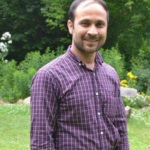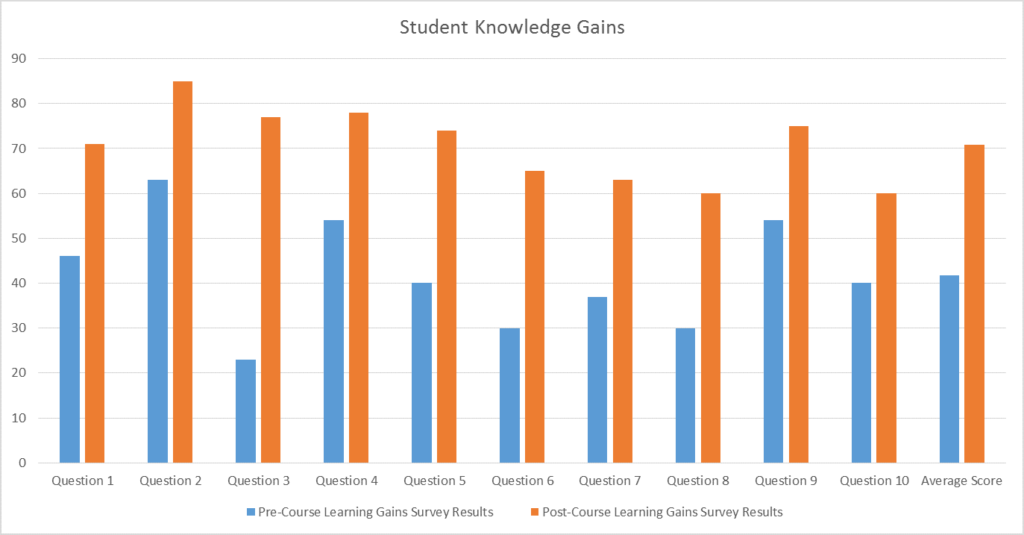Ahmadullah Archiwal, an ICNC High School Curriculum Fellow, developed, offered and moderated a course on the introduction to civil resistance in 2016 as part of the ICNC High School Curriculum Fellowship. As the results from course evaluations show, students found the course to be extremely beneficial and valuable for their education.
The information featured below was submitted as part of the fellowship requirement that, among others, included creating a detailed course proposal, developing curriculum content, designing evaluation tools, selecting participants and extensive moderation throughout the course.
Learn more by clicking on the topic links:
About the Curriculum Fellow
Course Abstract
Learning Gains Survey Results
 Ahmadullah Archiwal has two Masters (the first in Journalism from the University of Peshawar in Pakistan and the second in International Affairs from the New School University in New York). He has been leading a small organization, OSCAR, which has been the flagship of nonviolent civic mobilization in Afghanistan for the last five years. They are the only organization teaching nonviolence in Afghanistan and have done pioneering work such as generating important contextual materials on the topic, including translating relevant books from English into local languages, writing a book on nonviolence, and conducting relevant workshops in different parts of the country.
Ahmadullah Archiwal has two Masters (the first in Journalism from the University of Peshawar in Pakistan and the second in International Affairs from the New School University in New York). He has been leading a small organization, OSCAR, which has been the flagship of nonviolent civic mobilization in Afghanistan for the last five years. They are the only organization teaching nonviolence in Afghanistan and have done pioneering work such as generating important contextual materials on the topic, including translating relevant books from English into local languages, writing a book on nonviolence, and conducting relevant workshops in different parts of the country.
Course Title: Civic Education
High School: Umara Khan High School, Afghanistan
Abstract: This course aims to equip the students with a basic understanding of nonviolent civic mobilization, in addition to culturally specific tactics of nonviolent resistance. We will begin by discussing the history of nonviolent resistance, examining its effectiveness and the common misconceptions surrounding it. The course will then move to focus on forms of nonviolent resistance that have roots in Afghan culture. We will be reinforcing the idea that nonviolent civic mobilization has historically been used by Pashtuns and others living in the region. Our discussions will range in topic from Abdul Ghafar Khan to Pashtun Nationalism to contemporary civil resistance struggles in the Islamic world and beyond. We will examine the idea that nonviolent resistance is applicable not only in democratic societies, but in societies of all political makeups. The overall goal of the course is to reduce the group’s vulnerability to joining insurgency by educating them in nonviolent civic mobilization.
Learning Gains Survey (LGS) Results:
The LGS aims to measure knowledge gains among course participants. Participants take the Pre-Course Survey at the beginning of the course and take an identical survey (Post-Course) at the end of the course. Included below are the graphed responses to the questions from the Pre-Course and Post-Course Survey showing the percentage that chose the correct answer and the percentage that chose the incorrect answer. 
Learning Gains Survey Results Explained:
As you can see in the graph above, the majority of students reported having low levels of familiarity with various civil resistance struggles and tactics when completing the Pre-Course LGS at the start of the course. The average pre-score was 42%. However, by the time students completed the Post-Course LGS, at the end of the course, they reported much higher levels of familiarity with each struggle listed and general civil resistance knowledge. At the end of the course the average score was 71%, which was a 29% increase.
Learning Gains Survey Answer Key:
The following questions were graded using “correct” or “incorrect” answers.
Learning Gains Survey Questions:
1. Nonviolent civic mobilization is about pacifying the target group
2. Nonviolent civic mobilization takes place without taking into consideration the political and social condition in a society
3. Nonviolent civic mobilization campaigns are more effective than violent campaigns
4. Nonviolent civic mobilization campaigns are waged only for political motives
5. A charismatic leader is a must have for the success of a nonviolent campaign
6. Conflict is inevitable in human life
7. It’s only the rulers who have power in a society
8. The impact of violent campaigns is durable and long lasting
9. All nonviolent civic mobilization movements take place spontaneously
10. Marches and protests are the most effective means for nonviolent campaigns
Go back to the main ICNC High School Curriculum Fellowship page.
